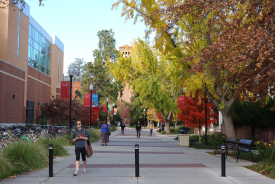A recent study shows that people who often use satellite navigation (satnav) have higher chances of losing their wits. Apparently, while we rely more on GPS (Global Positioning System), it shuts down the parts of our brains responsible for directions.
The students of the University College London (UCL) found out that the hippocampus and prefrontal cortex brain regions display spikes of activity when the samples manually navigate. On the contrary, no reaction happens when they rely on the satnav. The researchers first published their findings on Nature Communications last Tuesday.
As quoted in Times Live, Hugo Spiers of UCL Department of Experimental Psychology said that "when we have technology telling us which way to go, parts of the brain simply don't respond." Technically, it "switched off" its interest in the streets around us. In the long run, the continuous use of GPS devices may result in losing our navigational skills permanently.
According to Live Science, 24 people participated in the experiment done in the Soho area of central London. Sophisticated scanners then examined how the human brain maps out an entire network of streets and deals with unexpected obstacles and detours. One of the authors, Amir-Homayoun Javadi, boldly claimed that humans will get "worse and worse at using their brains for pathfinding" sooner than later.
Well, the hippocampus is really one of the highlights of our brains and losing it would be catastrophic. It is also responsible for storing and recalling memories as well as planning the future. Nevertheless, the option to use tools instead of natural abilities is not always negative. For one thing, transferring a demanding mental task to a gadget may allow the brain to focus on other purposes.
To further illustrate, one of the tests performed by the University College London students involved solving a road maze by following a series of left and right turns. Another trial featured pushing a button to track the optimized path prepared by a computer. On the other hand, today's children may have adapted different skills based on the current technological environment.
© 2025 University Herald, All rights reserved. Do not reproduce without permission.








